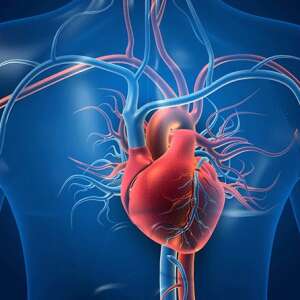Atrial septal defect (ASD), ventricular septal defect (VSD), and patent ductus arteriosus (PDA) are the common types of CHDs…reports Asian Lite News
With a whopping 200,000 cases per year, congenital heart disease remains a significant concern in India, said health experts on Saturday.
Congenital heart defects (CHDs) can be defined as cardiac anomalies present since birth and cover a wide spectrum from small defects.
“The prevalence of congenital heart disease is about 9/1000, which is approximately 200,000 per year. However, it is difficult to know the exact incidence rate due to a lot of disparity in the availability of facilities in rural areas in India,” Dr Mayur Jain, Consultant – Cardiothoracic Surgeon & Heart and Lung Transplant Surgeon, P. D. Hinduja Hospital & MRC, Mahim, told.
Dr Swati Garekar, Senior Consultant-Paediatric Cardiology, Fortis Hospital, Mulund noted that the number of babies with congenital heart defects (CHD) appears to be rising.
“A big reason for this is that we are able to pick up more cases that were earlier undetected: Doctors are now more aware of how babies with CHD present to them in the OPD. They masquerade commonly as failure to gain weight or as repeated cough/cold/pneumonia episodes,” she told.

Atrial septal defect (ASD), ventricular septal defect (VSD), and patent ductus arteriosus (PDA) are the common types of CHDs.
Newborns typically show symptoms such as rapid breathing, poor feeding, poor weight gain, bluish discolouration of skin, and recurrent chest infections. On the other hand, chest pain, shortness of breath, fatigue, headache, inadequate growth as per age, bluish discoloration of nails and lips, and recurrent chest infections may be common representations of CHD in older children.
Dr Swati noted that the reasons for CHD are multifactorial.
It includes “the state of mother’s nutrition, vaccine status (like German measles), exposure to pollutants in her food, water, air, skin, medicines in the first two months of pregnancy”.
Dr Mayur recommended maternal vaccination against rubella and flu, and abstinence from alcohol during pregnancy.
He also advised daily folic acid supplements during the first trimester (first 12 weeks) of pregnancy to lower the “risk of giving birth to a child with congenital heart disease and other birth defects”.
The doctor also advised women to keep diabetes under control and to avoid exposure to organic solvents, such as those used in dry cleaning, paint thinners, and nail polish remover during pregnancy.
ALSO READ-Covid-19 Vaccination Cuts Mortality Risk in Heart Failure Patients














